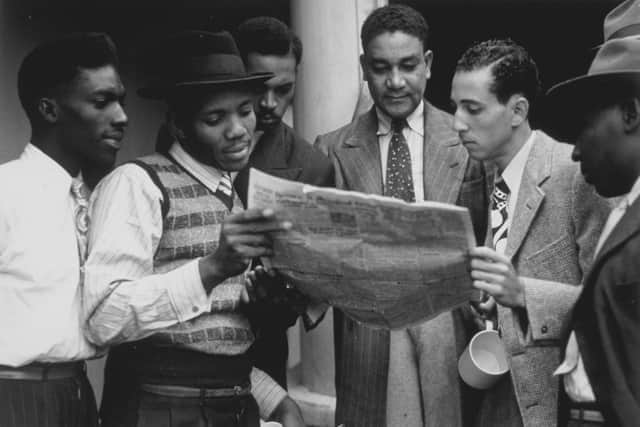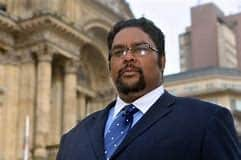What life was like for the Windrush generation in Birmingham, according to community activist
and live on Freeview channel 276
A leading campaigner for equality has called for the spirit of the Windrush generation to be rekindled as the nation marks the 75th anniversary of the first wave of Caribbean immigrants arriving in Britain.
June 22 marked Windrush Day, recalling when the Empire Windrush arrived at the Tilbury Docks in 1948 filled with those who had been encouraged to settle in the UK by the Government following World War II. They were granted the right to settle indefinitely without restrictions by the British Nationality Act 1948 and the steady flow of arrivals continued under the initiative until 1971.
Advertisement
Hide AdAdvertisement
Hide AdBut when they arrived in the UK, these passengers faced extreme racism and intolerance from the white population, despite being encouraged to settle in the country by the Government to aid the labour market. Many were denied employment and accommodation, and were banned from social environments like pubs, clubs and churches.
The parents of former Birmingham City Council Housing Officer, Bishop Dr Desmond Jaddoo MBE, are of the Windrush Generation. As chair of the Windrush National Organisation, he has worked tirelessly to challenge injustice against the people who emigrated from the Caribbean to the UK from 1948 onwards. His work was recognised in this year’s King’s Birthday Honours.
Dr Jaddoo’s parents came to the UK from Jamaica in the early 1960s before settling in Birmingham, where he was born and grew up. He told BirminghamWorld about the hostilities they faced after moving to the UK.


“They came over here to make some money and look after their family back home and to make a life for themselves - the same story. My mother initially moved to Nottingham then Bradford where she met my father and settled in Birmingham. They wouldn’t have expected to be called a variety of different names when they came over,’ said Dr Jaddoo.
Advertisement
Hide AdAdvertisement
Hide Ad“But the treatment was very similar across the whole country - the ‘No Blacks, No Dogs, No Irish’ signs were present at the time. But today, we don’t need to focus on the fact the signs were there, we should focus on the fact that the Windrush generation found a way to go and own the same houses that had these signs up, and that’s testament to their resilience and spirit - it’s this spirit of Windrush which is our unity what unifies us.”
He added: “For myself, being born here, you felt different because our parents had a different skin colour from white people, but we found a way to brush that aside and live our lives the way we were supposed to live them.”
The scandal surrounding the awful treatment of the Windrush generation by the Home Office came to the surface in 2018. The Windrush generation are legal UK citizens but many were wrongly detained, denied legal rights and medical care, lost their jobs and homes, had their passports confiscated, threatened with deportation and, in more than 80 cases, wrongly deported from the UK by the Home Office.


Despite having lived and worked in the UK for decades, and the fact that Commonwealth citizens had been given indefinite leave to remain by the 1971 Immigration Act, many of these people were told that they were in the country illegally due to a lack of official paperwork. This was because the Home Office had not kept a record of those granted leave to remain, and also issued no paperwork, making it extremely difficult for members of the Windrush generation to prove their legal status.
Advertisement
Hide AdAdvertisement
Hide AdOn the scandal and treatment of the generation Dr Jaddoo said: “The Windrush generation came to this country as British folks with British passports - why would you be stigmatising people that came here with British passports? My parents had one. My father-in-law, bless him, has his British passport wrapped in plastic to this day because he’s proud of it and the scandal that happened to them meant they had to buy them back despite the fact they were theirs initially.”
He added: “What we now need to do now is develop greater education around the issue, because the scandal does not define who we are, it defines the treatment we were subjected to. We must rekindle the spirit of the Windrush - that togetherness and how our parents dealt with things is in us all.”
Comment Guidelines
National World encourages reader discussion on our stories. User feedback, insights and back-and-forth exchanges add a rich layer of context to reporting. Please review our Community Guidelines before commenting.
